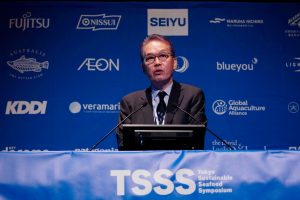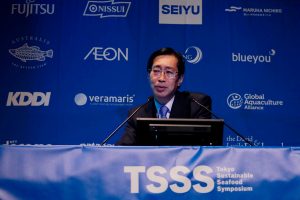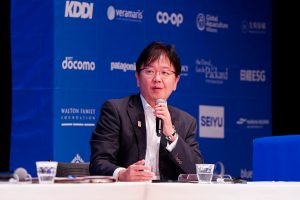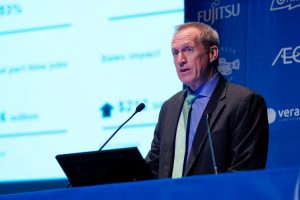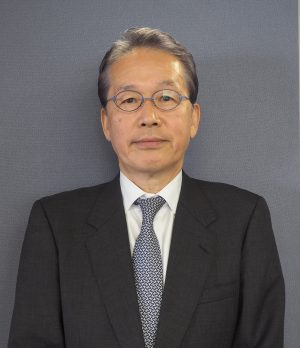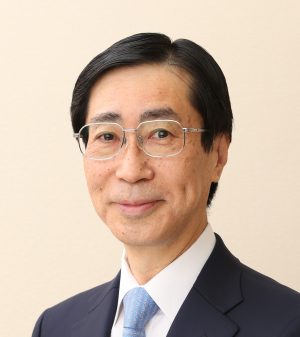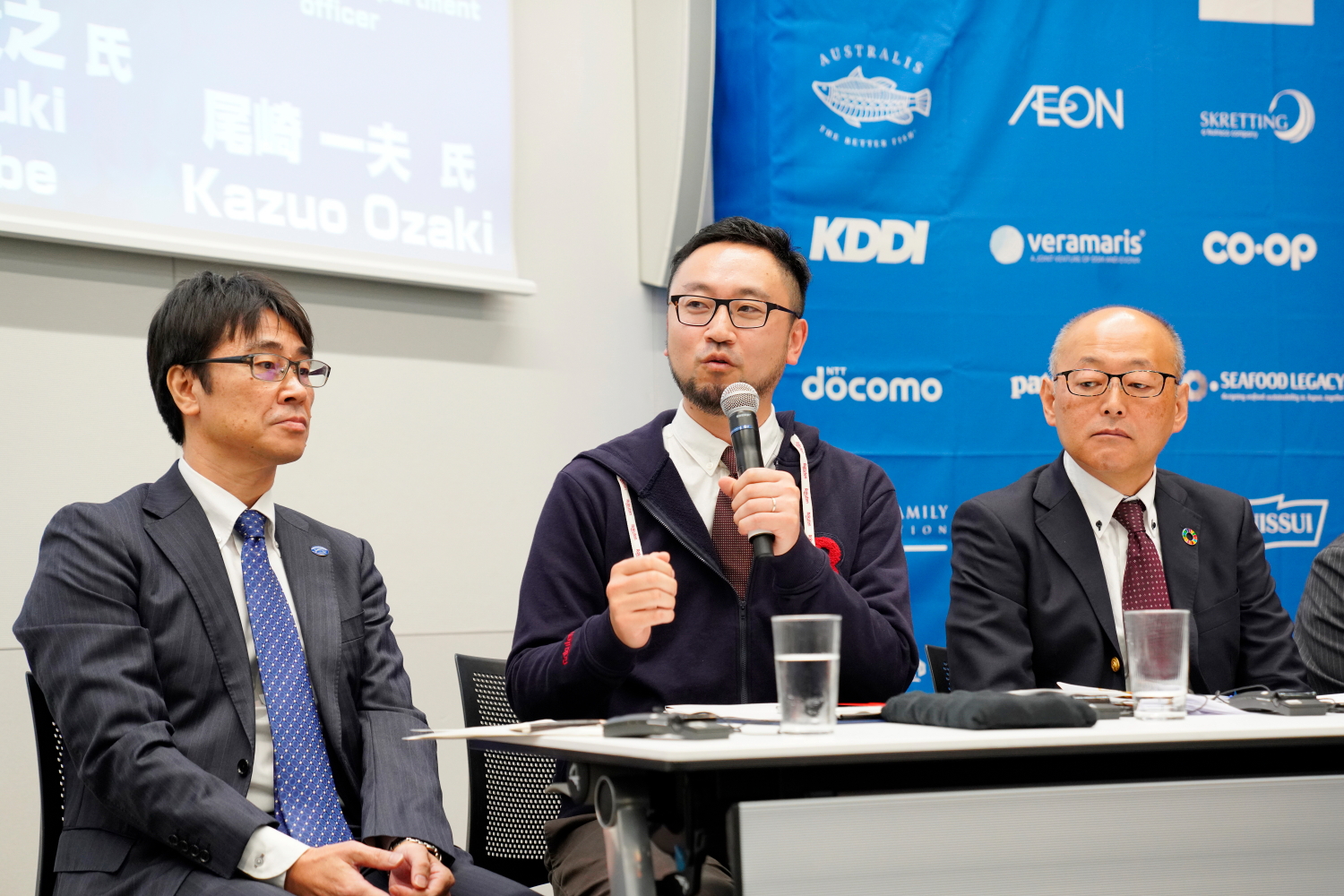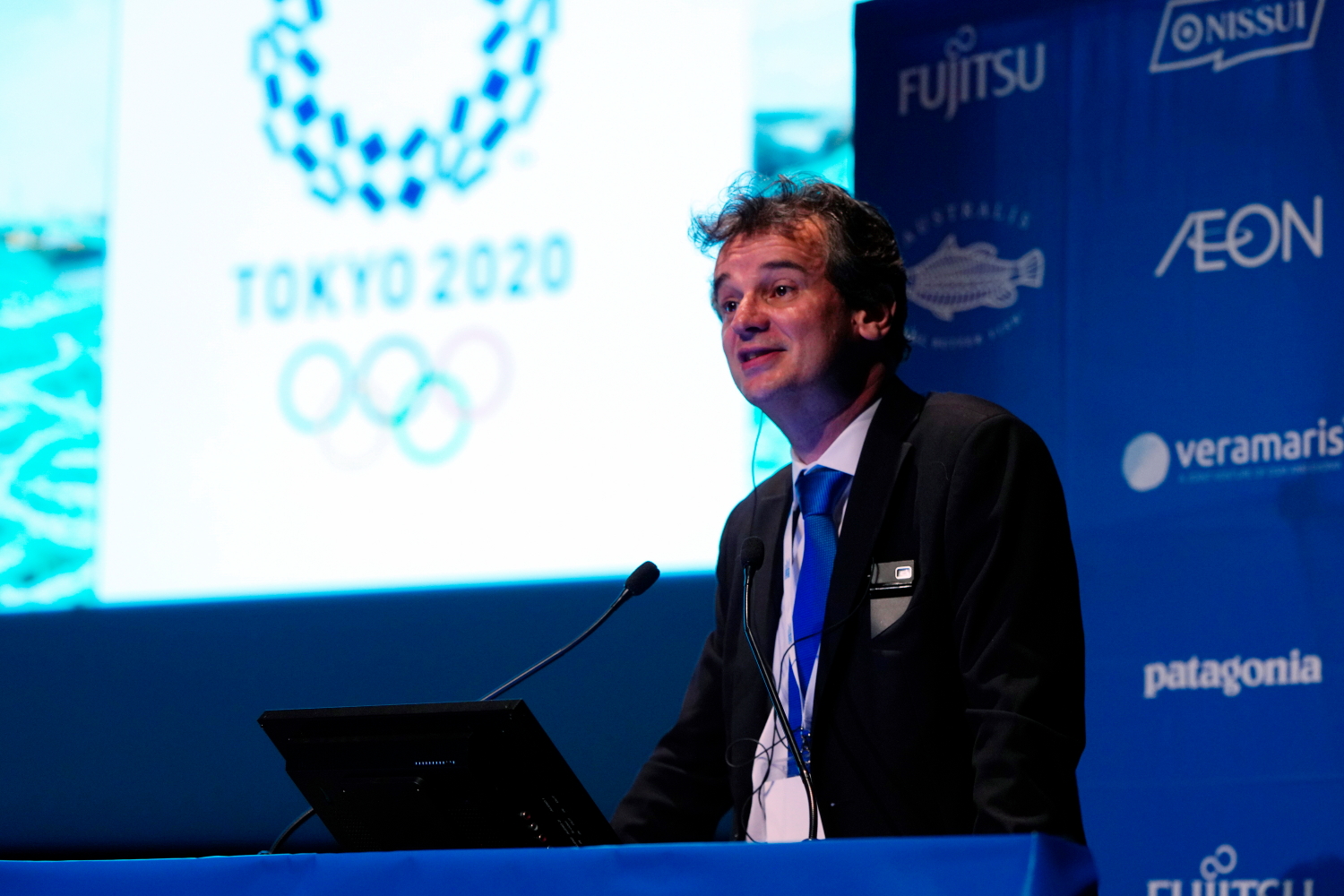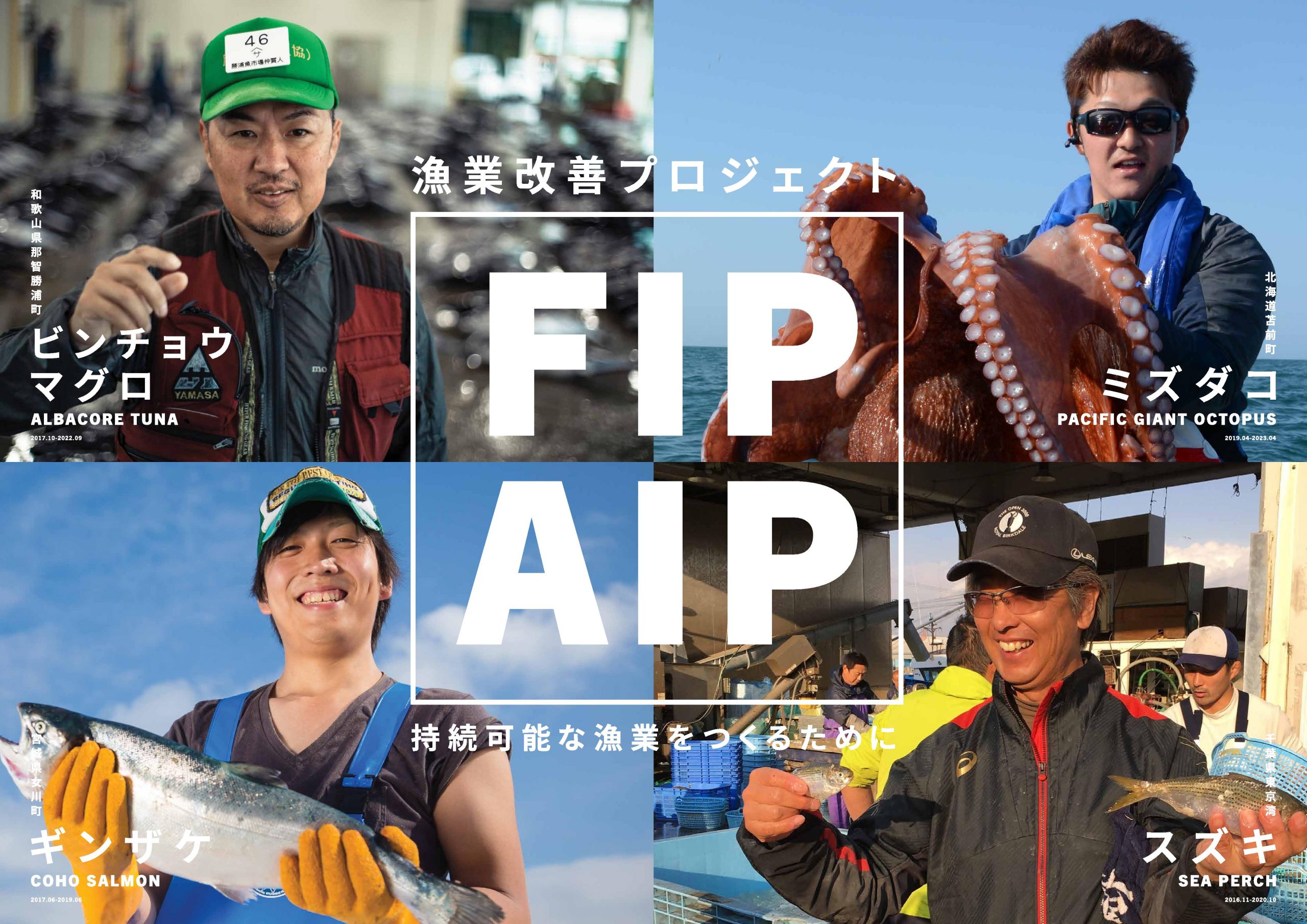P-6: Difficult Reform is Essential for Resource Recovery
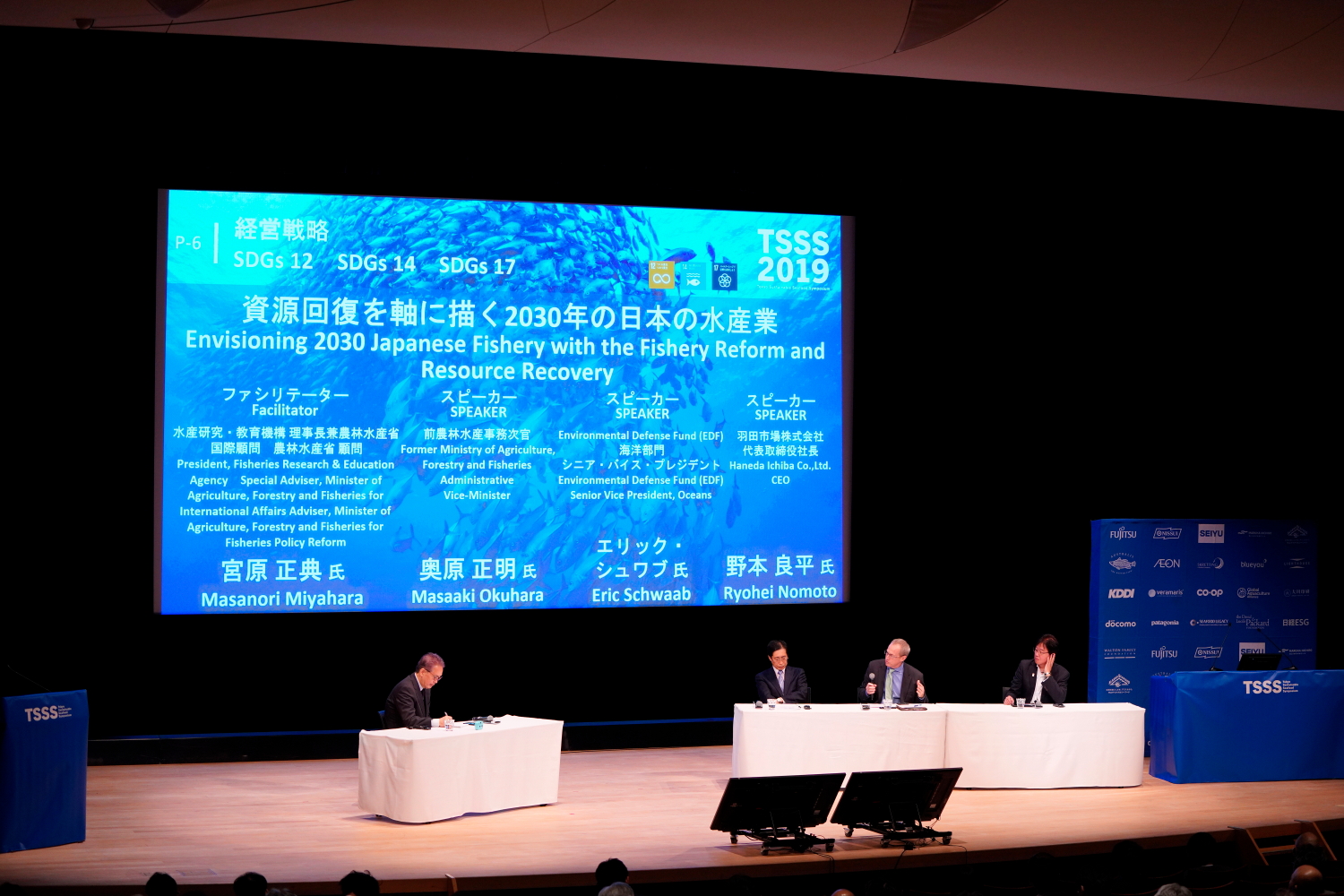
The title of the first panel discussion was “Envisioning 2030 Japanese Fishery with the Fishery Reform and Resource Recovery.” Masanori Miyahara from the Japan Fisheries Research and Education Agency facilitated the panel. Masaaki Okuhara, the former Administrative Vice Minister of Agriculture, Forestry, and Fisheries who led the last year’s fishery act reform, Eric Schwab, who took an important role on the US’s fishery reform, and Ryohei Nomoto from Haneda Ichiba, a pioneer of the new seafood distribution system, joined on the stage.
The Key to Revitalize the Japanese Fishing Industry
To begin the discussion, Mr. Miyahara looked back on the history of the Japanese fishing industry by stating that Japanese people have long taken for granted that Japan is surrounded by bountiful seas, but this has not been the case recently. The catch volume is declining significantly, especially in popular species such as pacific saury and wild salmon. The reform of the Fishery Act, which Mr. Okuhara took the lead on, aims to resolve these issues fundamentally.
What needs to be done to improve the current situation? How can we improve our fishing industry to become one of the best fishing nations in the world again? The answer was to adopt robust resource management systems.
There are three pillars in the new Fishery Act. One is to control the total volume catch. This will improve the quality of the resource assessment and management. The second pillar is to increase the size of the fishing vessels, which leads to better work conditions and productivity. The last pillar is to reform fishery rights to fully utilize Japan’s surrounding waters.
“Japan has been neglecting the fact that the domestic fisheries have been declining in past decades. However, regional development is impossible without the agriculture, forestry, and fishing industries.” Mr. Okuhara stated.
“Catching as Many Fish as Possible” to “Sustainable and Profitable Fisheries”
Mr. Nomoto has been working on improving the distribution system by establishing new routes to connect fishermen and buyers faster. Working closely with fishermen around Japan, Mr. Nomoto sees the importance and difficulty of the fishery reform.
Mr. Nomoto states that the mentality of the Japanese fishing industry, “how to catch as many fish as possible,” needs to transition to “how to sell at the highest price.”
For example, a small mackerel weighing 20g used for compost or feed costs roughly ¥1. However, a mackerel that has been nurtured to about 600g that we see in stores and restaurants costs about ¥500. Mr. Nomoto explains that by switching to management based on the total catch, fishermen will earn more by catching more expensive fish. In this instance, smaller fish will be left in the ocean to grow and reproduce, making the fishing industry a sustainable, profitable business.
Reform is Not Easy. Transparent, Inclusive Stakeholder Engagement is Important
Next, Mr. Schwab shared his experience of fishery reform in the United States.
In the United States, fishing industry regulations were reformed in 2006, and significant results followed in the next ten years. Out of the fish species that faced extinction because of overfishing, 45 are no longer endangered. The fishing industry produced more than 212 billion dollars and generated 1.76 million jobs. He says that similar results can be expected in Japan.
Mr. Schwab stated, “The content of the reform is important, but implementation is also important.” These efforts require time and effort, as they must value fairness and receive agreement from every party. Based on his experience, he believes that decisions must be based on scientific evidence, and its process must be transparent and engage all stakeholders.
